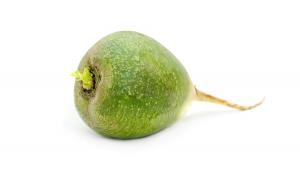Are Palm Tree Plants Poisonous to Cats?
If you are a cat owner who loves plants, you may be wondering if your palm tree plant is safe for your furry friend. While palm trees are generally considered safe for cats, there are a few things to keep in mind to make sure your cat stays healthy.
Types of Palm Trees
Firstly, it's important to note that there are many different species of palm trees, and some may be more harmful to cats than others. For example, sago palm trees are known to be highly toxic to cats and can cause liver failure if ingested. However, most other varieties of palm trees are non-toxic to cats and shouldn't cause any harm if your cat nibbles on the leaves.
Symptoms of Palm Tree Poisoning
If you do have a sago palm or suspect that your cat has ingested any part of a palm tree, it's important to watch for symptoms of poisoning. These can include vomiting, diarrhea, lethargy, loss of appetite, and abnormal behavior. If you notice any of these symptoms, you should seek emergency veterinary care for your cat immediately.
Preventing Poisoning
One of the easiest ways to prevent palm tree poisoning in cats is to simply keep your plants out of reach. Consider placing them on high shelves or using hanging baskets. You can also train your cat to stay away from certain areas of your home using positive reinforcement techniques.
Another precaution you can take is to keep a close eye on your cat when they are around your palm tree plants. If you notice your cat trying to eat the leaves or playing with the plant, gently redirect their attention to a toy or treat.
Conclusion
Palm tree plants can be a beautiful addition to any home, and for the most part, they are safe for cats. However, it's important to be aware of the potential risks associated with certain types of palm trees, such as sago palms, and to take steps to prevent poisoning. By keeping your plants out of reach and monitoring your cat's behavior, you can help ensure that your furry friend stays happy and healthy.

 how many times do yo...
how many times do yo... how many planted tre...
how many planted tre... how many pine trees ...
how many pine trees ... how many pecan trees...
how many pecan trees... how many plants comp...
how many plants comp... how many plants can ...
how many plants can ... how many plants and ...
how many plants and ... how many pepper plan...
how many pepper plan...































